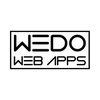The digital landscape is a constantly evolving ecosystem, and in today's world, a robust online presence is no longer a luxury - it's a necessity. This is where website development services come in, crafting the digital face of your brand and allowing you to connect with your target audience in a meaningful way. But behind the scenes, a complex symphony of languages powers these websites. Understanding these languages is crucial for effective communication with website development companies and ensuring your vision translates flawlessly into reality.
Whether you're a seasoned business owner or an entrepreneur launching your first venture, venturing into the world of website development can feel overwhelming. The technical jargon and seemingly endless list of acronyms can create a barrier to communication. This guide delves into the world of website development languages, equipping you with the knowledge to navigate conversations with developers and make informed decisions. We'll explore the foundational languages that form the bedrock of most websites, delve into specialized options that cater to specific functionalities, and shed light on the factors influencing language choice. By the end of this guide, you'll have a clearer understanding of the languages that bring websites to life and how they contribute to the overall success of your online presence.
The Essential Trio: HTML, CSS, and JavaScript
Imagine a website as a house. Here's where the core trio comes in:
HTML (Hypertext Markup Language): Think of HTML as the foundation of the house. It provides the structure and basic layout, defining the essential elements like walls, rooms, doors, and windows. HTML uses tags to identify these elements, acting as a blueprint that tells the browser how to display the content.
CSS (Cascading Style Sheets): Imagine CSS as the paint, décor, and overall styling of the house. It controls the visual appearance of the website, dictating elements like font styles, colors, layouts, and animations. CSS transforms the basic HTML structure into a visually appealing and user-friendly experience.
JavaScript (JS): JavaScript adds the functionality and interactivity that brings the house to life. It allows for features like user input forms, dynamic content updates, and interactive elements like animations and image carousels. JavaScript essentially equips the website with smart home features, making it feel more engaging and user-friendly.
Specialized Languages for Specific Needs
While the essential trio forms the backbone of most websites, specialized languages cater to specific functionalities:
PHP (Hypertext Preprocessor): A server-side scripting language that goes beyond generating static web pages. It excels at creating dynamic websites that interact with databases and personalize user experiences. Imagine a website where users can log in to access personalized content or an e-commerce platform where products are added to shopping carts and user purchases are processed. PHP handles the complex communication between the website and the server, ensuring a smooth and seamless user experience.
Python: A versatile and powerful language used for both front-end and back-end development. While often praised for its readability and beginner-friendliness, Python is a powerhouse when it comes to building complex web applications. From intricate data analysis dashboards to full-fledged e-commerce platforms, Python's capabilities extend far beyond basic website functionality.
Java: A robust and mature language often used for enterprise-level websites and applications. Java prioritizes security and scalability, making it ideal for high-traffic websites that need to handle a large volume of users and data. Think of banking applications or social media platforms – Java's stability and security features ensure these web development services function flawlessly even under heavy use.
Ruby on Rails (RoR): A popular framework built on Ruby, known for its rapid development capabilities and clean syntax. RoR is often favored for building lean startups and web applications that need to be launched quickly. Its efficient development process allows businesses to get their ideas to market faster, without sacrificing functionality.
The Takeaway: A Collaborative Journey
Website development involves collaboration between you and the development team. Understanding the different languages doesn't make you a programmer, but it empowers you to participate in informed discussions, ask relevant questions, and ensure your vision is translated accurately. Don't hesitate to ask your chosen website development company to explain their language choices and the rationale behind them. After all, a successful website is the product of a clear vision and skilled execution, working in harmony.
The Future of Website Development Languages: Trends and Innovation
The world of website development is constantly evolving, and the languages used to build websites are no exception. Here's a glimpse into some of the key trends shaping the future:
Rise of Low-code/No-code Platforms: Low-code/no-code platforms offer drag-and-drop interfaces and pre-built modules, allowing users with limited coding experience to create basic websites. While these platforms have limitations in terms of customization, they can be a cost-effective option for simple websites or landing pages.
Progressive Web Apps (PWAs): They offer an app-like experience accessible through a web browser, providing functionalities like offline usage, push notifications, and faster loading times. Languages like JavaScript and frameworks like React are instrumental in building PWAs.
Focus on Security: With cyber threats constantly evolving, website security is paramount. Secure coding practices and languages that prioritize security features like Java will likely remain prominent.
Artificial Intelligence (AI) and Machine Learning (ML): The integration of AI and ML into websites is already making waves. These technologies personalize user experiences, recommend products, and even power chatbots for customer service. Languages like Python are well-suited for tasks involving AI and ML implementation.
Rise of Cloud-based Development: Cloud-based development allows for greater flexibility, scalability, and collaboration. Languages like Python and Java offer robust support for cloud platforms like AWS and Azure.
Conclusion: Building a Website for Success
The language a website development company chooses depends on your project's specific needs and goals. By understanding the core languages, their functionalities, and the factors influencing choice, you'll be well-equipped to navigate conversations with developers and make informed decisions.


No comments yet